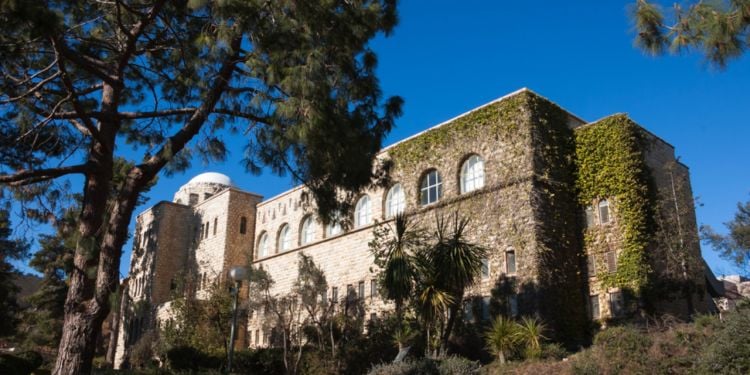Study in Israel

Israel is one of the most educated countries in the world. Roughly half of its adult population holds a tertiary degree, according to the OECD. Dubbed “the start-up nation”, Israel owes its economic success to its highly skilled manpower and hence maintains strong focus on education. Those hoping to study in Israel will be pleased to discover that the QS Higher Education System Strength Rankings 2016 places the country 28th worldwide.
Higher education in Israel
The Israeli higher-education system and teaching methods are inspired by the European and American models. Masters programs typically last three to four years. Free and independent academic curricula are guaranteed by the law.
In addition to a number of diverse private higher education institutions, the country has nine universities offering undergraduate, graduate and post-graduate programs, six of which are featured in the QS World University Rankings 2016/2017:
- Hebrew University of Jerusalem
- Tel Aviv University
- Technion-Israel Institute of Technology
- Ben-Gurion University of the Negev
- Bar-Illan University
- University of Haifa
Although the official teaching language is Hebrew, all of the above mentioned universities offer programs in English for international students at undergraduate and graduate levels.
Good to know:
Because of compulsory military service, most young Israelis start their higher studies later than in most countries, between 20 and 24.
Exchange programs
Some Israeli universities offer students enrolled in foreign universities special exchange programs lasting from one semester to one year. In addition to regular classes, exchange students have the opportunity to take intensive Hebrew lessons as well as special classes in Jewish and Israeli history and culture. Academic qualifications achieved during the exchange can be recognised back home thanks to systems of credit equivalence.
Non-Israeli Jewish students who want to study in Israel can contact the Student Authority, under the aegis of the Ministry of Immigrant Absorption, which offers guidance and counselling, as well as financial support and help with registration.
Tuition fees in Israel
While the Student Authority provides for the cost of public Israeli programs (at about USD 3,000 a year), most of the programs taught in English are private, with tuition fees ranging from USD 6,000 to 25,000, and therefore are not fully covered.
A range of scholarships, public and private, are available to foreign students wishing to pursue higher studies in Israel. They vary in extent, some covering airfare only, others the whole spectrum of study-related expenses, including tuition. You can find more information on scholarships in Israel on the scholarship portal.
Additionally, the cost of living for students in Israel is slightly below European standards. On average, a student needs some USD 10,500 a year for living expenses.
Application to an university program in Israel
Would-be students in Israel should apply directly to their chosen university. They may have to pass a psychometric exam for admissions purposes, with tests in quantitative reasoning, verbal reasoning and English skills. The exam is available in Hebrew, Hebrew/English, Arabic, Russian, French and Spanish.
Student visas for Israel
Students planning to stay longer than 3 months in Israel should apply for a student visa from the nearest Israeli consulate, with the following documents in hand:
- A passport valid for at least one year if their country has diplomatic ties with Israel, and for six months after the intended duration of stay if not;
- a visa application form;
- a letter of acceptance from the university;
- 2 passport sized photos; and
- proof of sufficient funds to cover their expenses for the duration of their stay.
Applicable fees
The student visa is valid for one year and allows multiple entrances and exits. If your course lasts longer than a year, you will need to extend your visa while in Israel. A student visa does not allow you to work in Israel.
Student accommodation in Israel
Most international students in Israel choose to live in university-provided accommodation, both to spare themselves the hassle of home-hunting and to enjoy the chance to make friends among fellow students. Contact your host university for more information about student accommodation.
Otherwise, finding private accommodation in Israel or a homestay can be quite straightforward once you are on the spot.
Useful links:
Colleges in Israel
Council for Higher Education
Bar-llan University
Ben-Gurion University of the Negev
Hebrew University of Jerusalem
Technion
Tel Aviv University
University of Haifa









